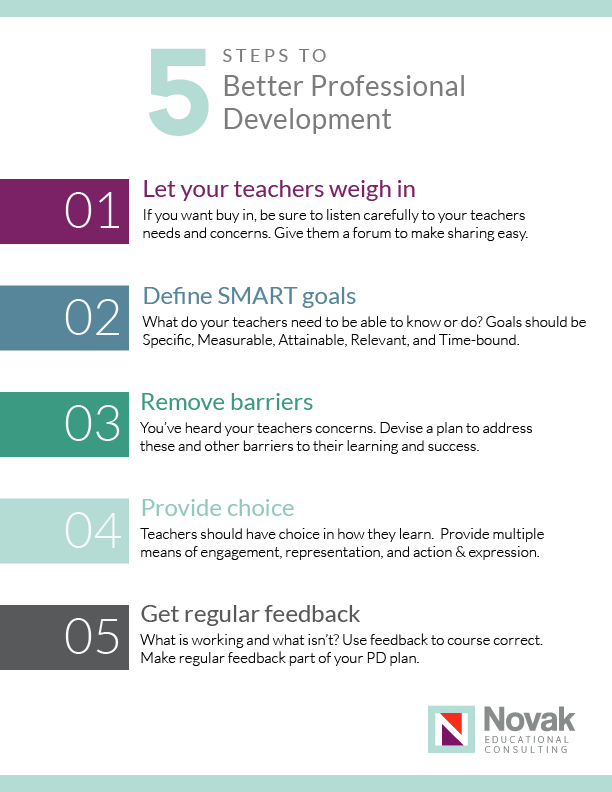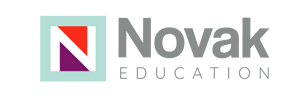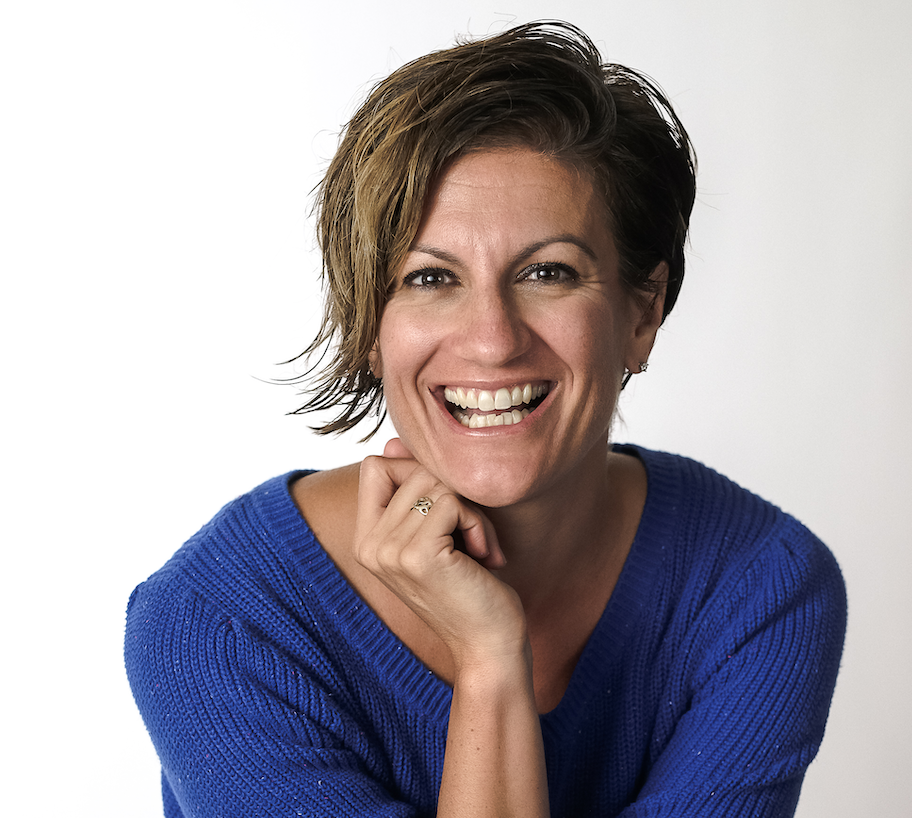They didn’t build Rome in a day, and we certainly can’t educate our kids in a day. But all too often our systems limit professional development for teachers to a single intensive day on a new program, initiative, or framework. An intensive PD day shouldn’t be a single event, it should be part of a longer learning journey.
Universal Design for Learning (UDL) has taught us time and time again that it is not our students who are disabled – it is our curriculum, our assessments, and our systems that are disabling to our students. When we remove barriers to engagement, representation, and action & expression, we see that all students are capable of learning and being successful.
Multi-tiered systems of support (MTSS) allow us to provide the same level of support to our educators as our students. MTSS reminds us that if we hold the belief that all teachers are capable of educating all students, and we provide them with the necessary resources to support and challenge them, we can see true transformation in our schools.
A single, intensive, professional development day can be a great way to get all staff members on the same page and build excitement and community around a new initiative. But we need to go further to help our teachers be successful. Just as we do for our students, we need to remove barriers for teachers, offer continuous support, and promote lifelong, expert learning.
Expert learners are purposeful and motivated, resourceful and knowledgable, and strategic & goal-directed. Expert learners know their limitations and how to use resources and supports to build understanding and execute plans.
So, how can you create better professional development for your educators? We’ve put together a list of 5 steps to help you with this process. Remember, they didn’t build Rome in a day, and you can’t completely change your PD plan overnight, but when you try, try, and try again, you’ll find that one day you’ll look back and you won’t recognize what’s in your rearview mirror.
1. Let Your Teachers Weigh In
Your teachers need to have a voice in your education community. Every frustration, complaint, or issue is valid. Let your educators tell you what they want for professional development. Provide your teachers with a forum for sharing. In the spirit of UDL, allow them to choose the way they best communicate with you. For example, host a teachers town meeting, but also give teachers the option to complete an online form, send you an email, or have a conversation over the phone.
2. Define Your Goals
When we plan a PD session, we need to keep in mind what our goals are. Are you looking to build engagement, knowledge, or inspire your teachers into action? Are you launching a new initiative or building upon existing knowledge? Use SMART goals (Specific, Measurable, Attainable, Relevant, Time-bound) to help you with the process and be sure to have a clear plan in place for communicating those goals.
3. Remove Barriers
During step one, you let your teachers define the barriers they face when teaching inclusive classrooms. Now, it’s your turn to think of other barriers that may interfere with your teachers’ abilities to be successful. Come up with a plan (even if it is a long-term one) for addressing those barriers. Make sure to set aside the appropriate resources (time/scheduling and funding), to alleviate some of the barriers. Let your educators know their concerns have been heard and what you plan to do. Even taking small steps can help show teachers that you value their opinions and are working in their best interest.
4. Provide Choice
Our teachers should have options, just as their students, in how they learn. When providing professional development, remember to provide multiple means of engagement, multiple means of representation, and multiple means of action and expression. By doing this, you will automatically eliminate many barriers (see step 3 above!).
Maybe you start by hosting a school-wide or district-wide professional development day. But thereafter, what supports will you provide to assist your teachers, particularly when you are introducing a new initiative or framework? Your district, school, and educator requirements will be unique, but we’ve compiled a list of some common additional supports:
- Instructional coaching & technical assistance
- Peer-to-peer groups
- Graduate-level courses (in person or online)
- Moderated book groups
- Faculty meetings with webinars
- At-home webinars
5. Get Regular Feedback
Listening isn’t just a way to start a conversation about professional development. Listening should be a regular part of the learning process. When done frequently, you can learn what is working, what is not, and make course corrections. You can continue to remove barriers that you hadn’t foreseen. Create a community for your educators where feedback and open communication are welcomed and considered.
If you need assistance with developing a professional development plan that works for your educators, we can help. Our consultants can provide professional development sessions, instructional coaching, webinars, online courses, and more. Learn about all of our professional development offerings here.




